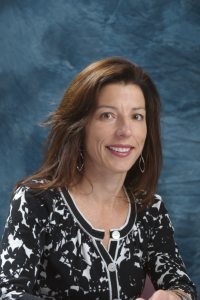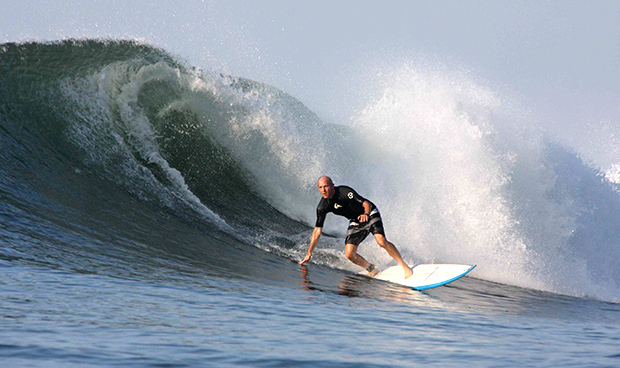
By:
- Judy Piercey
Published Date
By:
- Judy Piercey
Share This:
UC San Diego’s Brightest to Share Groundbreaking Ideas at Founders’ Symposium
An annual tradition at UC San Diego’s Founders’ Day celebration is to showcase our faculty as they share groundbreaking ideas and the inspiration for what they do. On Friday, Nov. 16 from 5 to 7 p.m. at the Rady School of Management, six dynamic speakers will each offer an informal ten-minute talk about research happening at UC San Diego that has real impact on everyday life.
This is the second in a three-part series that features each speaker and their work, passions and personal insights that will give you a hint of what you will learn at the Founders’ Symposium. More information is available at founders.ucsd.edu.
Amanda Datnow

Amanda Datnow
Can you tell us a bit about your background?
I grew up in Denver. I was born in South Africa and my parents immigrated to the U.S. when I was a child. They instilled in me the importance of hard work, and I have also been fortunate to have some wonderful learning opportunities during the course of my education. I moved to San Diego to attend college. I am a proud Triton, having received my bachelor’s degree at UCSD in 1990. During my undergraduate years, I had the experience to work on an education research project with Hugh (Bud) Mehan, a sociology professor who helped to put the campus on the map in the field of education research and in the training of education practitioners. It was in large part due to the research experience I gained and Bud's amazing mentorship that I was able to pursue an exciting academic career, something I would never have considered. I was very pleased to return to UCSD five years ago, and I'm now a Professor and Chair of the Department of Education Studies, the place where my own early experiences in the field of education began. This is my fifth year as a UC San Diego faculty member. I’m the chair and professor in the Department of Education Studies.
What will your 10-minute discussion be about?
The title of my talk is “The Future of Teacher Education.” Producing high quality teachers is of key importance for improving K-12 public education. We need to equip children to have the 21st century learning skills, and teachers require a host of critical skills and experiences in order to be effective. This presentation will discuss research in teacher education and explain how UC San Diego is having an impact in schools in the region by putting these ideas into practice.
Why do you do what you do?
My research focuses on educational reform. Throughout my career I’ve been very interested in reform efforts and policies that have been implemented to try to improve the educational experiences of students—particularly students from low-income racial and ethnic minority backgrounds. I believe research has an important role to play in helping inform policy and practice, and I am interested in doing work that leads to educational improvement in all schools, but particularly schools where students are currently being underserved.
What is fun about your work?
Working with the faculty and students in Education Studies brings me a great deal of joy. We have a great group of faculty in our department who share a commitment to providing excellent teaching to our students, supporting equity and diversity, and engaging in rigorous inquiry into critical educational issues. We bring a wide variety of disciplinary backgrounds to our research. Our department has a strong collaborative culture, and it provides a great laboratory for new ideas in the field of education. We have fabulous students in our undergraduate and graduate programs, many of whom are doing work that makes a difference every day in the lives of young people in educational institutions.
What is exciting about your work?
As someone who is interested in reform, it is exciting to work in a field that is constantly changing. Throughout the course of my career, the reform climate in education has shifted dramatically, and I have been able to consider how these shifts have shaped educational experiences for students as well as the professional lives of educators.
Why does your work matter?
Education is of concern to almost everyone in the general public, and thus educational research on improvement matters a great deal. For many people, their interest in education is grounded in concerns about whether or not their own children, grandchildren or nieces and nephews are able to have positive educational experiences in public schools. Meanwhile, in California, schools face significant challenges due to the state budget for education the decline of other social services that affect children’s wellbeing. These are systemic problems that educational researchers alone cannot fix. However, the work we do helps to inform policymakers, educators and the public about the conditions and educational practices that are needed for all students to have the opportunity to achieve at high levels. Ideally, the work we do can help us anticipate the effects of proposed change efforts in education before we implement them.
Why should people come to see you on November 16?
People will have the opportunity to learn about the critical importance of high quality teaching, what research tells us about how to best train teachers, and how UC San Diego is having an impact in our region by putting these ideas into practice.
Stephen Mayfield

Stephen Mayfield Surfing
Can you tell us a bit about your background?
I’m a native Californian, born in Los Angeles and grew up on the coast, where I spent a lot of time surfing. I was an undergraduate at Cal Poly in San Luis Obispo and a graduate student at UC Berkeley. I was a post-doctoral fellow at the University of Geneva Switzerland and returned to California in 1987 as an assistant professor at the Scripps Research Institute. I eventually became the Associate Dean of Biology there, before coming to UC San Diego in 2009 to be director of the San Diego Center for Algae Biotechnology.
What will your 10-minute discussion be about?
“Food and Fuel for the 21st Century” is the title of my talk. Fuel and food are simply two different forms of closely related chemical energy. Both are derived from photosynthesis, the process by which sunlight energy is converted to chemical energy. Using “designed for purpose” photosynthetic organisms, we have the opportunity to develop production platforms for fuel and food that have unmatched efficiencies and productivities, which will be required if the world is to rise to our standard of living.
Why do you do what you do?
I didn’t start out to do this, I just thought algae was a good model organism to do molecular genetics on, and that’s what I liked doing. Over the years it became clear that we needed cheaper (more efficient) ways to produce medicines and other bioproducts, and more recently that we needed new sources of energy especially those that are carbon neutral, and algae fit that bill, so here I am.
What is fun about your work?
Making things, that might be drugs, it might be bio-plastics and it might be multicolored algae.
What is exciting about your work?
There is nothing more exciting than making a discovery that can change the world!
Why does your work matter?
We have been living a pretty lavish lifestyle for the last 50 years, spending countless generations of stored fossil fuels to power our travels around the world at jet speed, and to power our toys, and to super-size our meals ... it’s been fun, but now we need to sober up and start to live like responsible adults. Our work will help us live a sustainable, responsible life-style, and we’ll still get to have fun!
Why should people come to see you on November 16?
To learn about what the next ten years may hold in store for you and your family.
Share This:
You May Also Like
Stay in the Know
Keep up with all the latest from UC San Diego. Subscribe to the newsletter today.


